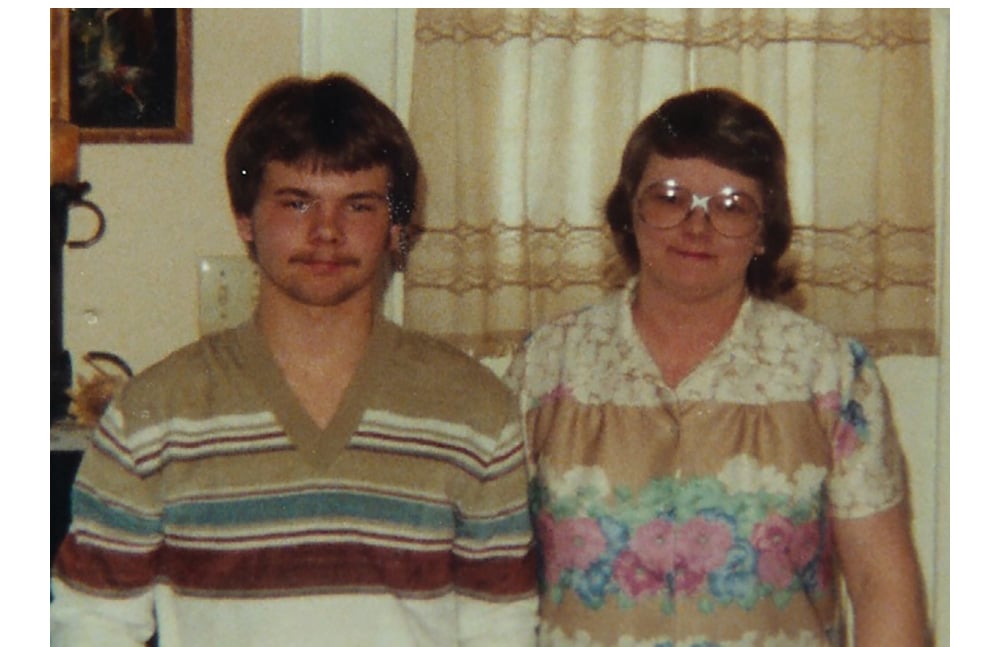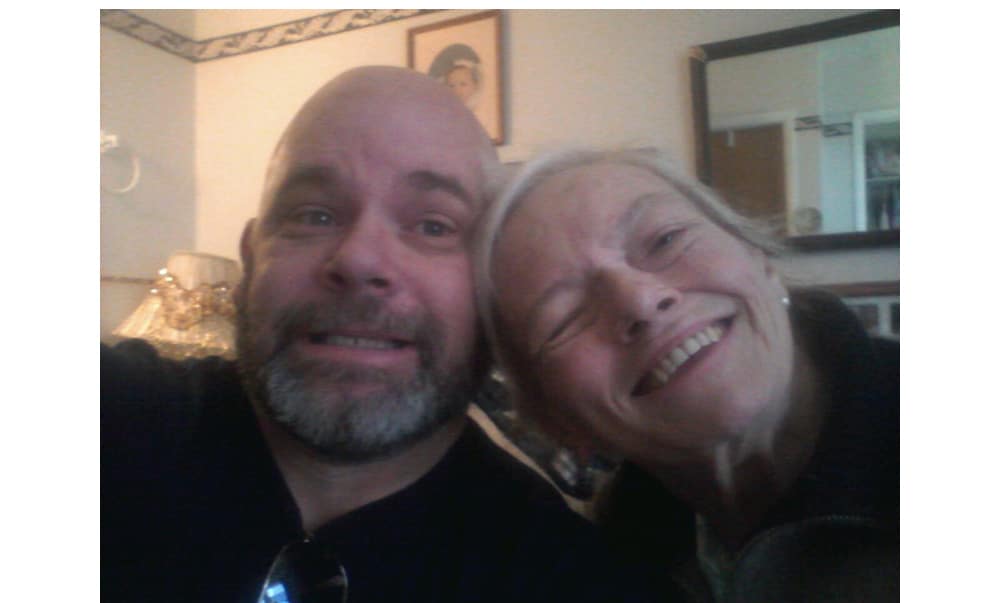By Rick Chromey
It was Mother’s Day 2014.
I was 50 years old, newly divorced, and slowly clawing my way out of decades of pain, addiction, hate, and bitterness.
My life was stopped at a crossroads, and unwanted separation and divorce introduced changes I never imagined.
Everything I worked (and lived) for was suddenly gone. My marriage. My family. My ministry. My opportunities. My income. My sense of security. I was one paycheck from living in my car. I was humiliated, broken, and confused. If it wasn’t for Celebrate Recovery and faithful friends, I could’ve been another statistic.
But I knew God wasn’t finished with me. And, indeed, he wasn’t.
Near the end of the recovery journey is making amends. This step demands a person seek forgiveness from anyone they’ve hurt or offended, as well as grant pardon to those who’ve hurt or offended them.
I had spent months stuck in this step.
I still had one last person to pardon . . . and she had hurt me most.
It was my own mother.
But to understand the end, let’s start from the beginning.
FALL 1976
In September 1976, I commenced my “wonder years.” Ah, the joys of junior high school! Two long years of early adolescent lockers, zits, crushes, and bullying. I spent most of 7th and 8th grade dazed and confused. My body was changing. My emotions flip-flopping. I looked at everything differently . . . God, life, friends, and girls.
Mom had always been my rock. Whenever life proved hard, she seemed to say or do the right thing. As a child, she shared in my fears, questions, hopes, dreams, and joys. Mom never missed my baseball games, choral concerts, scouting activities, or church performances. She encouraged my artwork and writing. Mom soothed my stomach when it was upset, fixed broken toys, and solved homework riddles. She listened to my tales and read me books. She treated me to ice cream and introduced me to Elvis, the Beatles, and Johnny Cash.
By the early 1970s, my parents’ 12-year marriage was on life support. As a trucker, my dad was sometimes gone weeks at a time. The physical distance provided my increasingly free-spirited, hippie mom the opportunity to explore and experiment. As the oldest of four, I started to see stuff no kid should see.
In my preteen years, mom spiraled out of control. She started drinking and using weed, even during the day. She partied and was absent for long stretches of time. More than once I spent the day with other “party parent” kids, watching soap operas in the basement, waiting on our folks to sober up enough to take us home. Many a night my siblings and I fell asleep on a neighbor’s couch.
Soon after I entered junior high school, my mom left town. Not for a week or a month, but forever. As kids, we heard nothing, but she left behind a hole that seemed bigger than the Grand Canyon. I felt wrecked without her. Depressed. Desperate. Disillusioned.
Fortunately, my maternal grandparents stepped up to save us from foster care. We had a home, at least. But that didn’t ease my inner pain. My adolescent years were consumed with a rage that frightened me and behaviors I now deeply regret. Parental abandonment creates deep wounds and, frankly, I don’t think you can ever get beyond them. I still struggle. But back then I feared relationships (especially with the opposite sex). I pursued perfectionism (to avoid further rejection). And I learned to hurt others before I got hurt and leave before I got left.

SEVERAL MONTHS LATER
On Easter Sunday 1977 our phone rang.
It was my mom.
She had called to inform us that she was OK (now married to another man in distant Houston, Texas). She asked to speak to each of us kids. My younger sister went first, then my brother. I waited, listening to their muffled conversations from behind a closed door and growing angrier by the minute. By the time my brother finished and handed the phone to me, I was ready to erupt.
“Hey, mom,” I said nonchalantly, holding back my rage.
“Rick, it’s good to hear your voice,” she replied. Then, over the next few minutes, she explained why she left us, how she hoped we could eventually all get past this moment, and said she loved us very much.
Love? I thought. Really? She loved us. That sentiment made my blood boil.
When she finished, there was a silence.
“Rick?” she asked, “are you still there?”
And that’s when I uncorked.
“Mom, I want you to know that I don’t love you. In fact, I hate you. I hate what you did, I hate who you are, I hate your new husband, I hate everything about you . . . period. Oh, and I will hate you until the day I die.”
With that final refrain, I slammed the phone down so hard I can still hear the bell ringing.
‘I HATE YOU, MOM’
Four little words that rightfully described my sentiments on that Easter Sunday (and every Mother’s Day, too). The power of this phrase locked me inside an emotional prison. As a “motherless child,” I was a victim. My mother’s choices subconsciously ruled my life, controlled my moods, defined my thoughts, and guided my choices. And to salve my pain and rage, I masked my life with hard rock music, girlfriends, theater, football, and church.
My solution was to be the “perfect” Christian kid. I buried my pain, bitterness, and anger beneath religiosity.
Unlike my peers, I refused to drink, smoke, dance, or chew. I was home early every evening. I committed to excellence in every endeavor (except my grades). I hungered for people to like me, want me, validate me. Like any good Pharisee, I carved a whitewashed tomb and filled it full of bones. I never let a person get too close. I kept friendships superficial. I rarely dated. Sometimes my relational dissonance spilled over into work, especially in my 20s and 30s.
I built a tall, thick wall around my soul to keep people out. I didn’t even give up “closet space” to my future wife, confidantes, or God. I refused to get hurt that deep again.
For 30 years I lived a fragile, fault-driven existence.
I also found fresh ways to hide my pain. As a Christian pastor, I recognized I couldn’t hate my mom (or anyone). So, I chose apathy instead. I gave my mom lip service. I visited her whenever I was in town. I called (monthly) and never missed her birthday or Christmas. For years she sought my forgiveness as part of her recovery process (she returned to her Christian faith), but I never gave it. She hungered to hear the words “I love you,” but I told her she would never hear those words from me.
It was my last weapon.
She was my “mom” and that’s all.
Naturally, these choices sealed my doom.
I eventually allowed certain vices to evolve into addictions. I moved from hating her to hating myself. I fell into deep depressions, even contemplating suicide. Of course, most people never witnessed “that guy” because my success as a pastor, professor, speaker, and writer presented a good stage, and I proved a worthy actor.

MOTHER’S DAY 2014
I phoned my mom. She now resided in an assisted living facility, alone and in deteriorating health. I called her regularly, if infrequently—but this call was different.
“Happy Mother’s Day,” I told her, “I thought I’d give you a gift, mom.”
“Your calls are always a gift,” she answered.
“No, mom, this is a gift that I should’ve given years ago,” I replied, “But I was too broken, stupid, selfish, and arrogant to do so.”
I paused. The silence was deafening. Every second seemed like a thousand years. But I finally said it. I said the words that freed my soul.
“Mom, I love you.”
I then told her everything, particularly how my abandonment issues kept me stuck in 1977. I then forgave how she hurt me, and I asked her to forgive me too. For the next two hours we laughed, wept, confided, and reminisced. I felt a huge weight fall off me. I suddenly felt light and liberated, free as a bird.
From that day forward, Mom and I talked weekly. A year later, I drove to Montana to introduce her to my new bride, Linda. She beamed with happiness that day! And so did I. The accompanying photo was the last picture taken with her.
I didn’t know reconciliation could feel so good, but in looking at the word forgiveness, I noticed you can’t spell it without these letters (in order): FREE.
Forgiveness emancipates a soul.
Less than six months later, my mom died.
We both said the same thing in that deathbed moment . . . the words of life.
“I love you, Rick.”
“I love you, Mom.”
And nothing has been the same since.
Dr. Rick Chromey is an inspirational speaker, author, and historian. In 2017, he founded MANNA! Educational Services International to train leaders, teachers, and parents with “inspirational edu-trainment.” He’s also the Lewis and Clark historian/speaker for American Cruise Lines in the Pacific Northwest. Rick lives near Boise, Idaho, with his wife, Linda.

Thank you for sharing your story. I know it will give hope to many.
Thank you so much, Rick, for sharing your story. May the Lord use it to help and free others.